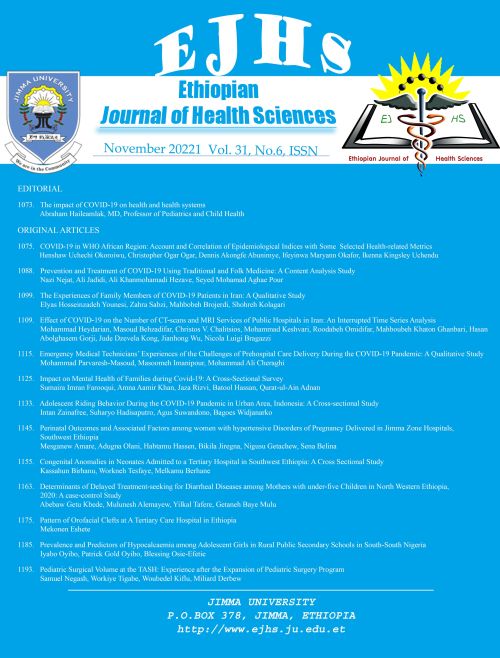Main Article Content
The Experiences of Family Members of COVID-19 Patients in Iran: A Qualitative Study
Abstract
BACKGROUND፡ Being diagnosed with coronavirus disease-19 (COVID-19) usually causes emotional stress for patients and their families. Understanding the challenges faced by family members of COVID-19 patients is necessary to provide holistic family centered care to support patients and families on their journey to recovery from COVID-19. The aim of this study was to explore the experiences of Iranian family members of COVID-19 patients.
METHODS: This qualitative study was performed using the conventional content analysis approach in 2020 in Gorgan, northeastern Iran. Using a purposive sampling 15 family members of inpatient and outpatient COVID-19 patients who were involved in caring of their patients were selected. Data were collected using in-depth and semi-structured interviews and were analyzed by Graneheim and Lundman’s content analysis method with the support of MAXQDA software.
RESULTS: Family members' experiences of COVID-19 patients were categorized into two main themes, four category and 10 subcategories. One of the main themes was "psychosocial distress", with two categories of "uncertainty of the disease" and "perceived psychosocial burdens". Another main theme was "adaptation strategies", with the two sub-categories including "adaptative care" and "trusting God".
CONCLUSION: The results of this study provide a broad range of context-specific challenges faced by family members of Covid- 19 patients. It is essential for healthcare providers to be aware of the complex psychological and social conditions of families of Covid-19 patients. Hence, healthcare managers and policymakers should implement preventive and supportive programs at all levels in hospitals and community and provide supportive strategies to reduce or eliminate their challenges.




